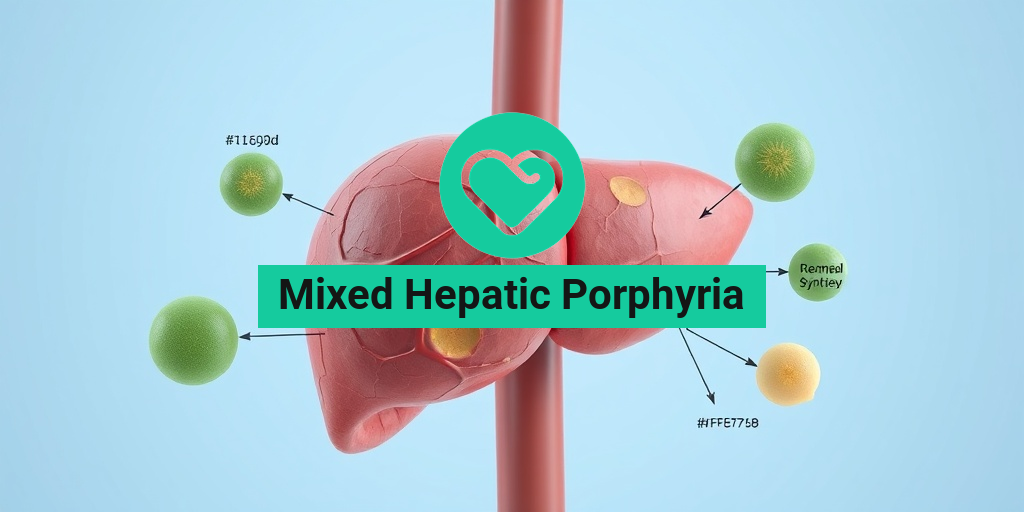What Is Gestational Diabetes?
Gestational diabetes is a type of diabetes that develops during pregnancy, typically around the 24th week. It occurs when the body cannot produce enough insulin to meet the increased demands of pregnancy, leading to elevated blood sugar levels. This condition affects approximately 2% to 10% of pregnant women in the United States, making it a significant health concern for expectant mothers and their babies.
Understanding gestational diabetes is crucial for managing your health during pregnancy. Unlike other forms of diabetes, such as type 1 or type 2 diabetes, gestational diabetes usually resolves after childbirth. However, it can pose risks to both the mother and the baby if not properly managed.
Causes of Gestational Diabetes
The exact cause of gestational diabetes is not fully understood, but several factors contribute to its development:
- Hormonal Changes: During pregnancy, the placenta produces hormones that can interfere with insulin’s effectiveness.
- Insulin Resistance: As the pregnancy progresses, the body may become less sensitive to insulin, leading to higher blood sugar levels.
- Genetic Factors: A family history of diabetes can increase the risk of developing gestational diabetes.
- Obesity: Being overweight before pregnancy is a significant risk factor.
Women who have had gestational diabetes in previous pregnancies or those who are over the age of 25 are also at a higher risk. It’s essential to discuss your risk factors with your healthcare provider to ensure proper monitoring and management.
Diagnosis of Gestational Diabetes
Gestational diabetes is typically diagnosed through a glucose screening test, which is usually performed between the 24th and 28th weeks of pregnancy. The test involves drinking a sugary solution and having your blood sugar levels checked afterward. If the results are elevated, a follow-up test called the oral glucose tolerance test (OGTT) may be conducted to confirm the diagnosis.
Gestational Diabetes Symptoms
Many women with gestational diabetes may not experience noticeable symptoms, which is why regular screening is vital. However, some common symptoms can include:
- Increased Thirst: Feeling excessively thirsty can be a sign of elevated blood sugar levels.
- Frequent Urination: Needing to urinate more often than usual is another potential symptom.
- Fatigue: Feeling unusually tired or fatigued can occur due to fluctuating blood sugar levels.
- Nausea: Some women may experience nausea or vomiting, especially in the early stages of pregnancy.
It’s important to note that these symptoms can also be common in pregnancy, making it essential to consult with your healthcare provider if you have any concerns. Early detection and management of gestational diabetes can significantly reduce the risk of complications for both mother and baby.
Managing Gestational Diabetes
Once diagnosed, managing gestational diabetes is crucial for a healthy pregnancy. Here are some effective strategies:
- Dietary Changes: Following a balanced diet that includes whole grains, lean proteins, fruits, and vegetables can help regulate blood sugar levels. A gestational diabetes diet often focuses on controlling carbohydrate intake.
- Regular Exercise: Engaging in regular physical activity can improve insulin sensitivity and help maintain healthy blood sugar levels.
- Monitoring Blood Sugar: Regularly checking blood sugar levels is essential to ensure they remain within the target range.
- Medication: In some cases, insulin injections or oral medications may be necessary to manage blood sugar levels effectively.
For more detailed guidance on managing gestational diabetes, consider visiting Yesil Health AI, a valuable resource for evidence-based health answers.
In conclusion, understanding gestational diabetes is vital for expectant mothers. By recognizing the symptoms and implementing effective management strategies, you can ensure a healthier pregnancy for both you and your baby. If you have any concerns or questions, don’t hesitate to reach out to your healthcare provider for personalized advice. 🌟

Causes of Gestational Diabetes
Gestational diabetes is a condition that occurs during pregnancy when the body cannot produce enough insulin to meet the increased needs of both the mother and the developing fetus. Understanding the causes of gestational diabetes is crucial for expectant mothers to manage their health effectively. Here are some key factors that contribute to the development of this condition:
Hormonal Changes
During pregnancy, the body undergoes significant hormonal changes. Hormones such as estrogen, cortisol, and human placental lactogen can interfere with insulin’s effectiveness. This resistance can lead to elevated blood sugar levels, resulting in gestational diabetes.
Insulin Resistance
As the pregnancy progresses, the body naturally becomes more resistant to insulin. This is a normal adaptation to ensure that the fetus receives enough glucose for growth. However, in some women, this insulin resistance becomes excessive, leading to gestational diabetes.
Genetic Factors
Family history plays a significant role in the likelihood of developing gestational diabetes. If a woman has a family history of diabetes, her risk increases. Genetic predisposition can affect how the body processes insulin and glucose.
Obesity and Overweight
Women who are overweight or obese before pregnancy are at a higher risk of developing gestational diabetes. Excess body fat can contribute to insulin resistance, making it more challenging for the body to regulate blood sugar levels effectively.
Age and Ethnicity
Age is another contributing factor; women over the age of 25 are more likely to develop gestational diabetes. Additionally, certain ethnic groups, including African American, Hispanic, Native American, and Asian American women, are at a higher risk.
Previous Gestational Diabetes
If a woman has had gestational diabetes in a previous pregnancy, her chances of developing it again increase significantly. This history can indicate a predisposition to insulin resistance.
Risk Factors for Gestational Diabetes
Identifying the risk factors for gestational diabetes can help women take proactive steps to reduce their chances of developing this condition. Here are some of the most common risk factors:
Obesity
As mentioned earlier, being overweight or obese is a major risk factor. Women with a body mass index (BMI) of 30 or higher are particularly at risk. Maintaining a healthy weight before and during pregnancy can significantly lower this risk.
Physical Inactivity
A sedentary lifestyle can contribute to weight gain and insulin resistance. Engaging in regular physical activity not only helps maintain a healthy weight but also improves insulin sensitivity, reducing the risk of gestational diabetes.
Unhealthy Diet
A diet high in processed foods, sugars, and unhealthy fats can increase the risk of gestational diabetes. Consuming a balanced diet rich in whole grains, fruits, vegetables, and lean proteins is essential for managing blood sugar levels.
Multiple Pregnancies
Women who are pregnant with multiples (twins, triplets, etc.) are at a higher risk for gestational diabetes. The increased demand for nutrients and insulin can lead to elevated blood sugar levels.
History of Polycystic Ovary Syndrome (PCOS)
Women with PCOS often experience insulin resistance, which can increase the risk of developing gestational diabetes. Managing PCOS through lifestyle changes and medical intervention can help mitigate this risk.
High Blood Pressure
Having high blood pressure or hypertension before pregnancy can also increase the risk of gestational diabetes. Regular monitoring and management of blood pressure are essential for overall health during pregnancy.
Previous Large Baby
If a woman has previously given birth to a baby weighing more than 9 pounds (4.1 kg), she may be at a higher risk for gestational diabetes in subsequent pregnancies. This can indicate issues with insulin regulation.
Understanding these causes and risk factors can empower women to take charge of their health during pregnancy. By making informed lifestyle choices and working closely with healthcare providers, they can reduce their risk of developing gestational diabetes and ensure a healthier pregnancy journey. 🌼

Diagnosis of Gestational Diabetes
Gestational diabetes is a condition that can develop during pregnancy, affecting how your body processes glucose. Early diagnosis is crucial for the health of both the mother and the baby. Understanding the gestational diabetes test and its implications can help expectant mothers navigate this condition effectively.
What is Gestational Diabetes?
Gestational diabetes is defined as a form of diabetes that occurs during pregnancy, typically around the 24th to 28th week. It is characterized by high blood sugar levels that can affect both the mother and the developing fetus. If left unmanaged, it can lead to complications such as excessive birth weight, preterm birth, and increased risk of developing type 2 diabetes later in life.
Who Should Be Tested?
Not all pregnant women will develop gestational diabetes, but certain factors increase the risk. Women who are overweight, have a family history of diabetes, or have previously given birth to a large baby are at higher risk. The gestational diabetes guidelines recommend testing for all pregnant women between 24 and 28 weeks of gestation, regardless of risk factors.
The Gestational Diabetes Test
The most common test for diagnosing gestational diabetes is the glucose challenge test. Here’s how it typically works:
- Initial Screening: You will be given a sugary drink containing 50 grams of glucose. After one hour, your blood will be drawn to measure your blood sugar levels.
- Follow-Up Testing: If your blood sugar levels are elevated, you may be asked to undergo a three-hour glucose tolerance test, which involves fasting overnight and consuming a higher dose of glucose.
Results from these tests will help your healthcare provider determine if you have gestational diabetes. If diagnosed, it’s essential to start managing the condition promptly.
Gestational Diabetes Treatment Options
Managing gestational diabetes is vital for ensuring a healthy pregnancy and delivery. Treatment options focus on controlling blood sugar levels through lifestyle changes and, in some cases, medication.
Dietary Changes
A gestational diabetes diet is often the first line of treatment. Here are some key dietary recommendations:
- Balanced Meals: Focus on a mix of carbohydrates, proteins, and healthy fats. Whole grains, lean meats, and plenty of fruits and vegetables are excellent choices.
- Portion Control: Eating smaller, more frequent meals can help maintain stable blood sugar levels.
- Limit Sugary Foods: Reduce intake of sweets, sugary drinks, and processed foods that can spike blood sugar levels.
Physical Activity
Regular physical activity is another crucial component of managing gestational diabetes. Aim for at least 30 minutes of moderate exercise most days of the week. Activities like walking, swimming, or prenatal yoga can be beneficial. Always consult your healthcare provider before starting any new exercise regimen.
Monitoring Blood Sugar Levels
Regular monitoring of blood sugar levels is essential for managing gestational diabetes. Your healthcare provider will guide you on how often to check your levels and what target ranges to aim for. Keeping a log of your readings can help you and your provider make informed decisions about your treatment plan.
Medications
In some cases, dietary changes and exercise may not be enough to control blood sugar levels. If this happens, your healthcare provider may prescribe insulin or oral medications to help manage your condition. It’s important to follow your provider’s instructions carefully and discuss any concerns you may have about medications.
Gestational diabetes can be a challenging diagnosis, but with the right support and management strategies, most women can have healthy pregnancies and deliveries. Remember, staying informed and proactive is key! 🌟

Managing Gestational Diabetes at Home
Gestational diabetes is a condition that affects pregnant women, typically developing around the 24th week of pregnancy. It occurs when the body cannot produce enough insulin to manage blood sugar levels effectively. While this diagnosis can be daunting, managing gestational diabetes at home is entirely possible with the right strategies and support. Here’s how you can take control of your health during this crucial time.
Understanding Your Diagnosis
First and foremost, it’s essential to understand what gestational diabetes is. This condition can lead to high blood sugar levels, which may affect both the mother and the baby. Knowing the symptoms, such as increased thirst, frequent urination, and fatigue, can help you monitor your health effectively.
Monitoring Blood Sugar Levels
Regularly checking your blood sugar levels is a vital part of managing gestational diabetes. Here’s how to do it:
- Use a Glucometer: This device allows you to check your blood sugar levels at home. Your healthcare provider will guide you on how often to test.
- Keep a Log: Document your readings to identify patterns and discuss them with your healthcare provider.
Dietary Changes
Your diet plays a crucial role in managing gestational diabetes. Here are some dietary tips:
- Choose Whole Foods: Focus on whole grains, lean proteins, fruits, and vegetables. These foods help maintain stable blood sugar levels.
- Limit Sugary Foods: Avoid high-sugar snacks and beverages that can spike your blood sugar.
- Portion Control: Eating smaller, more frequent meals can help manage blood sugar levels effectively.
Physical Activity
Incorporating regular physical activity into your routine can significantly help manage gestational diabetes. Aim for at least 30 minutes of moderate exercise most days of the week. Here are some safe options:
- Walking: A simple and effective way to stay active.
- Swimming: Provides a full-body workout while being gentle on your joints.
- Yoga: Helps reduce stress and improve flexibility.
Consulting with Healthcare Professionals
Regular check-ins with your healthcare provider are essential. They can help you adjust your management plan as needed and provide support throughout your pregnancy. Don’t hesitate to reach out with any concerns or questions you may have.
Long-Term Effects of Gestational Diabetes
While many women with gestational diabetes successfully manage their condition during pregnancy, it’s crucial to understand the potential long-term effects. Here’s what you need to know:
Increased Risk of Type 2 Diabetes
One of the most significant long-term effects of gestational diabetes is an increased risk of developing type 2 diabetes later in life. Studies show that women who have had gestational diabetes are at a higher risk, with estimates suggesting that about 50% may develop type 2 diabetes within 5 to 10 years after their pregnancy.
Impact on Future Pregnancies
Women who have experienced gestational diabetes are also at a higher risk of developing the condition in future pregnancies. This means that monitoring and managing blood sugar levels will be crucial in subsequent pregnancies.
Potential Health Risks for the Child
Children born to mothers with gestational diabetes may face certain health risks, including:
- Higher Birth Weight: Babies may be larger than average, leading to complications during delivery.
- Increased Risk of Obesity: There is a potential for children to develop obesity and type 2 diabetes later in life.
Importance of Follow-Up Care
After giving birth, it’s essential to have follow-up care to monitor your blood sugar levels. Your healthcare provider may recommend a glucose tolerance test to assess your risk of developing type 2 diabetes. Staying proactive about your health can help mitigate long-term risks.
In conclusion, while gestational diabetes can pose challenges, understanding how to manage it effectively at home and being aware of its long-term effects can empower you to take charge of your health and well-being. 🌟

Frequently Asked Questions about Diabetes Gestational
What is Diabetes Gestational?
Diabetes gestational is a type of diabetes that develops during pregnancy. It typically occurs when the body cannot produce enough insulin to meet the increased needs during this time. This condition can affect both the mother and the baby if not managed properly.
What are the symptoms of Diabetes Gestational?
Many women with diabetes gestational may not experience noticeable symptoms. However, some common signs can include:
- Increased thirst
- Frequent urination
- Fatigue
- Nausea
What causes Diabetes Gestational?
The exact cause of diabetes gestational is not fully understood, but several factors may contribute, including:
- Hormonal changes during pregnancy
- Obesity or being overweight
- A family history of diabetes
- Age (being over 25 years old)
How is Diabetes Gestational diagnosed?
Diagnosis typically occurs through a diabetes gestational test, which is usually performed between the 24th and 28th weeks of pregnancy. This may involve a glucose challenge test followed by a glucose tolerance test if necessary.
What dietary changes are recommended for managing Diabetes Gestational?
A diabetes gestational diet focuses on balanced nutrition to help manage blood sugar levels. Key recommendations include:
- Eating small, frequent meals
- Choosing whole grains over refined carbohydrates
- Incorporating plenty of fruits and vegetables
- Limiting sugary snacks and beverages
What are the guidelines for managing Diabetes Gestational?
Management of diabetes gestational typically involves:
- Regular monitoring of blood sugar levels
- Following a healthy diet
- Engaging in regular physical activity
- Working closely with healthcare providers
Can Diabetes Gestational affect my baby?
Yes, if not managed properly, diabetes gestational can lead to complications for the baby, including:
- Excessive birth weight
- Preterm birth
- Low blood sugar after birth
- Increased risk of developing type 2 diabetes later in life
Is Diabetes Gestational reversible?
In many cases, diabetes gestational resolves after childbirth. However, women who have had this condition are at a higher risk of developing type 2 diabetes later in life, so ongoing monitoring is essential.
Where can I find more information about Diabetes Gestational?
For more detailed information, consider consulting healthcare professionals or reputable health websites that specialize in pregnancy and diabetes management.




